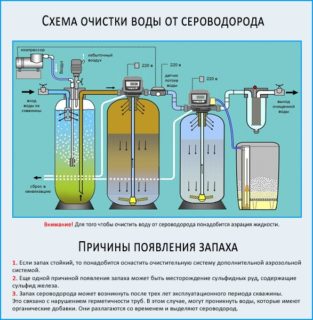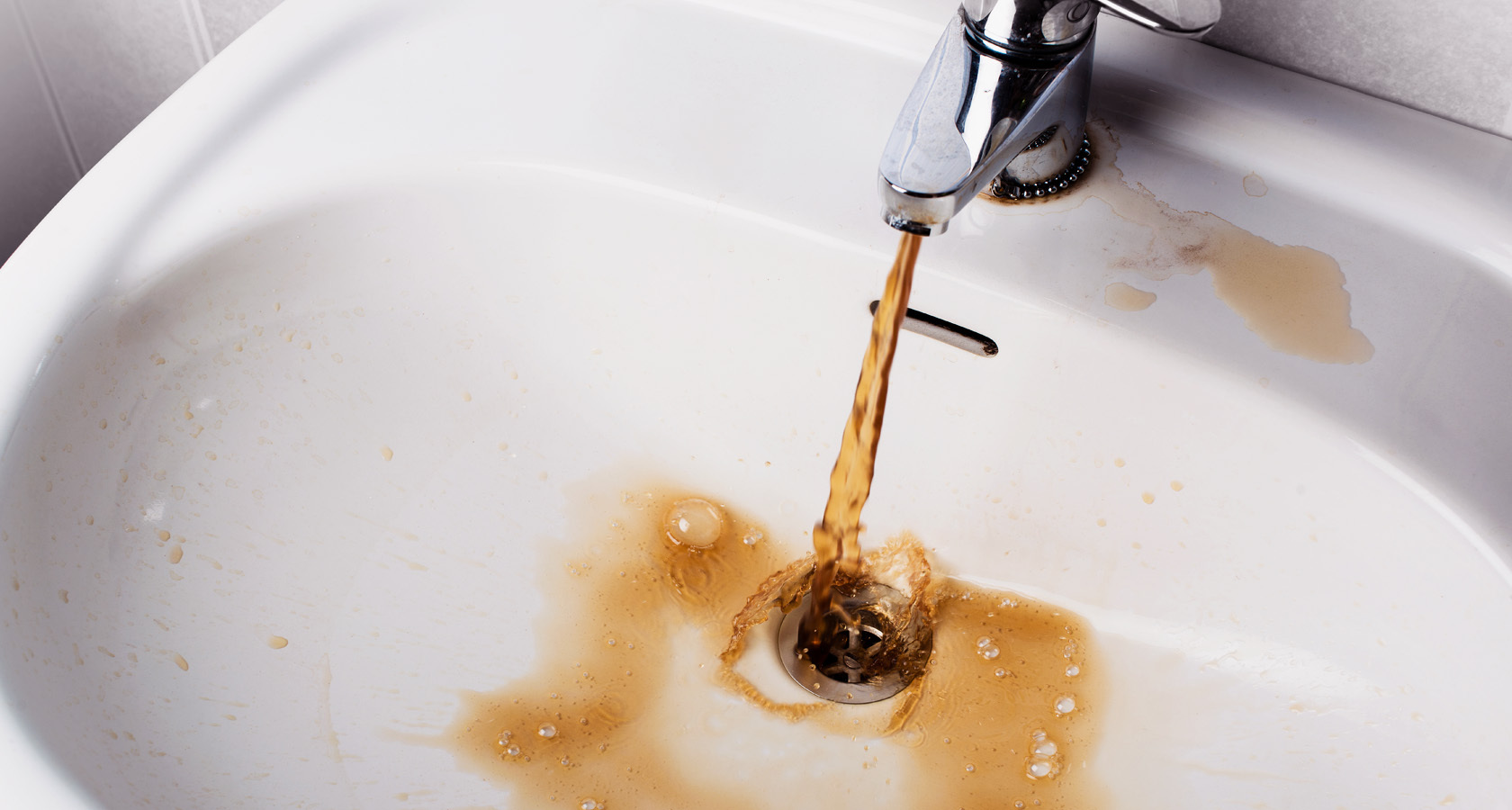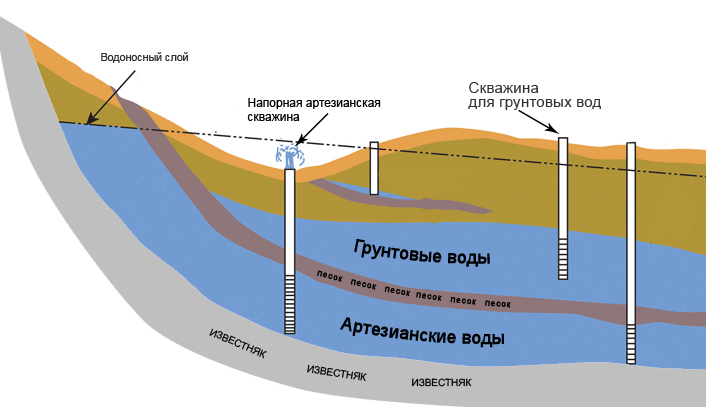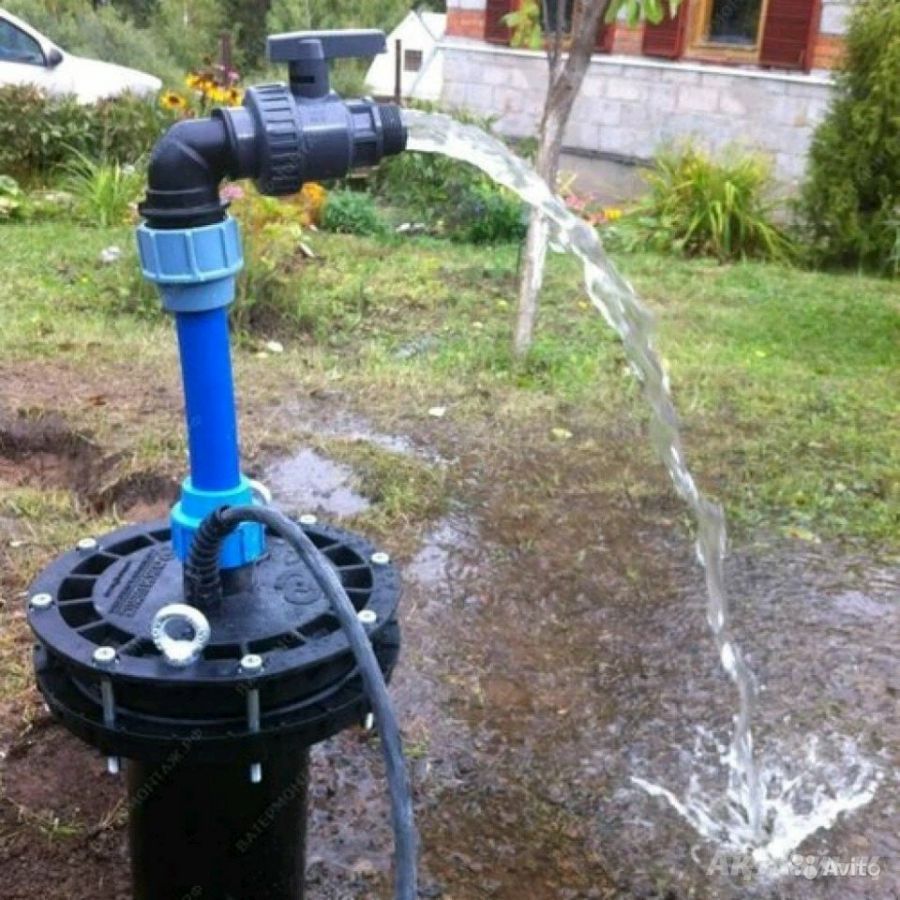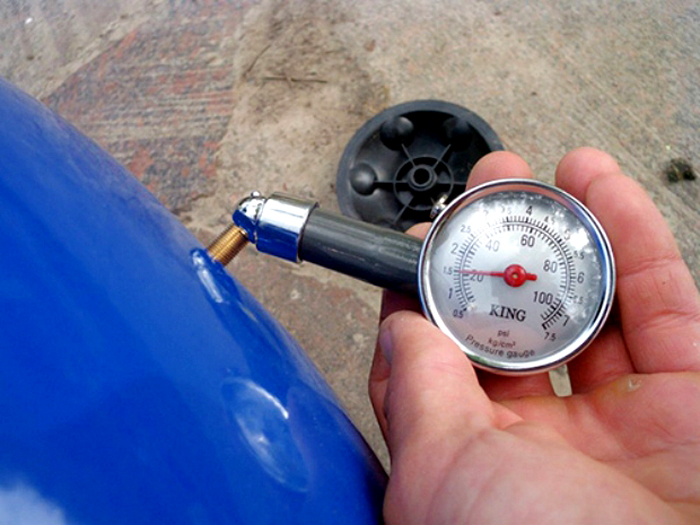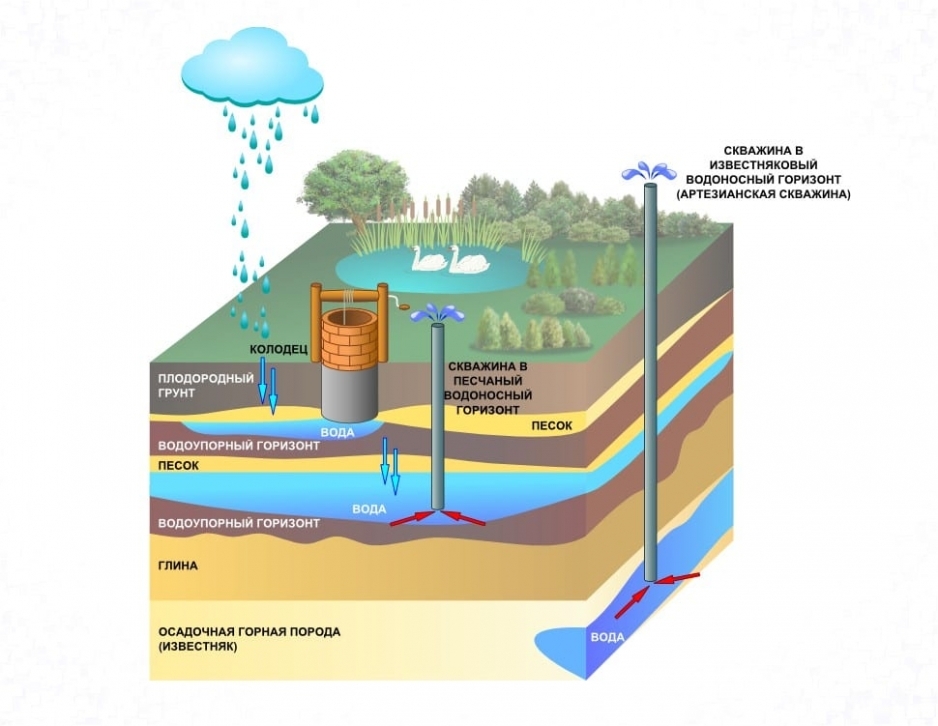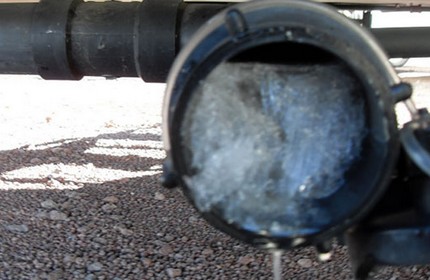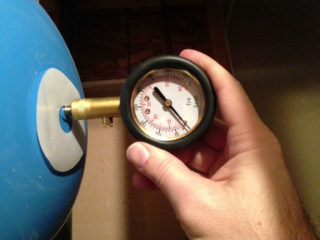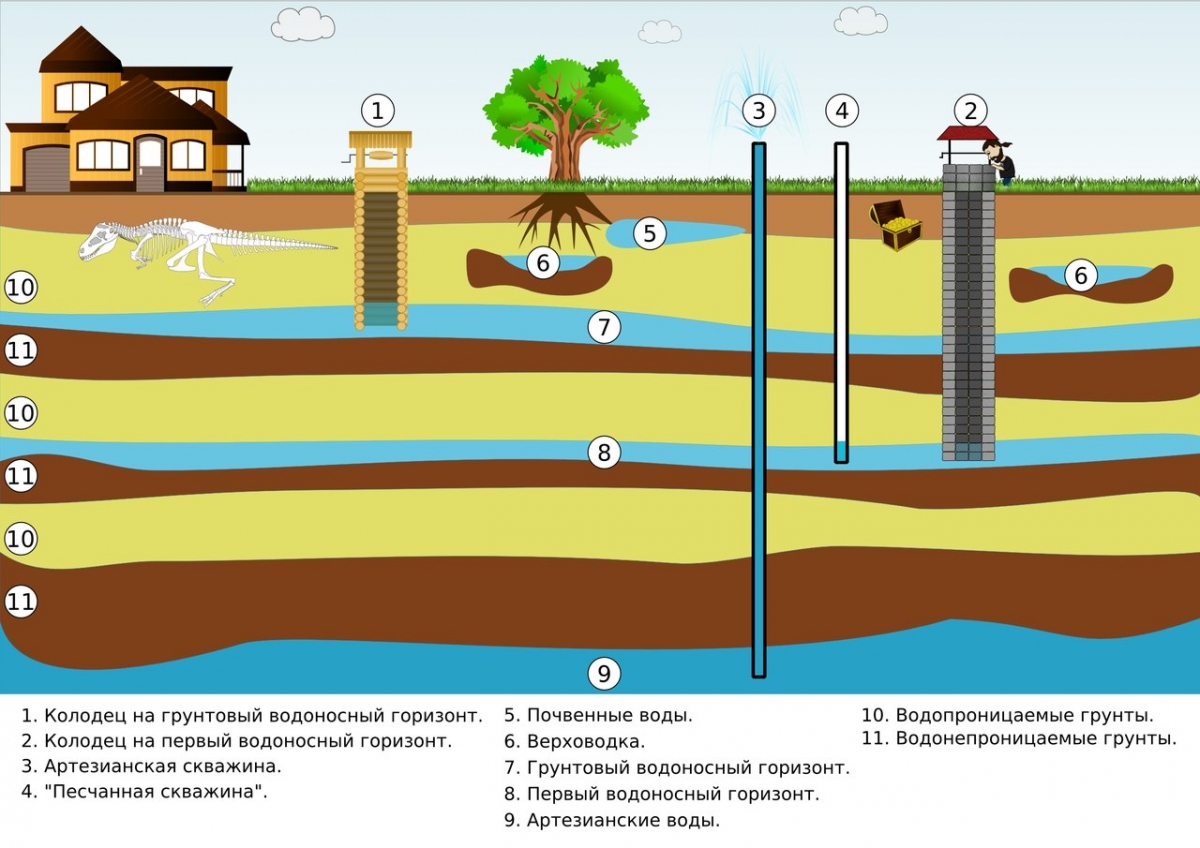Autonomous water supply in a private house and in the country is the only way to provide life-giving moisture if there is no possibility of connecting to the central highway. When the water in the well becomes polluted, the quality of life drops dramatically. One of the signs of contamination of the liquid with sulfur bacteria is a characteristic rotten smell. It is necessary to remove not only the smell of hydrogen sulfide from the well, but also the compounds of the harmful element.
Causes of the stench

Hydrogen sulfide in water from a well or well is formed due to the decomposition of proteins due to the vital activity of anaerobic microorganisms, which do not need oxygen for development. This element not only causes a disgusting smell of rotten eggs, it is hazardous to health: in case of excessive concentration or prolonged exposure, it leads to serious intoxication and even death.
The reasons that the compounds of this element end up in water:
- silting of a borehole source;
- penetration of pathogens into the mine with precipitation, from the top water, sewage;
- depressurization of the casing and seepage of contaminants;
- penetration of sulphurous ores during punching - in this case, the mine will start to stink from the first day of operation.
Hydrogen sulfide compounds are often found in fluids that have been extracted from artesian wells, since the bacteria that produce it multiply in tightly plugged layers where oxygen does not penetrate. If, in addition to hydrogen sulfide, the water contains oily products or chloride inclusions, this indicates a technogenic problem.
Determination of contamination
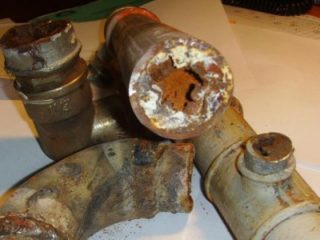
Visually, the element is not noticeable, it is felt only by the olfactory receptors. However, it can have a negative effect on metals by coming into contact with them. Under its action, there is a rapid corrosion of iron. The walls of pipes, a submersible pump, in contact with liquid from the well, rapidly turn yellow. When red spots on the metal appear right before our eyes, and the well smells bad, the water is clearly contaminated.
If the water from the well smells of hydrogen sulfide, you will need to contact the organization that pierced the source. Especially if you ordered a turnkey work. They will fix the situation for free if the warranty period has not expired.
When the smell of a swamp appeared only after the liquid passed through the water heater, the problem should be looked for not in the source itself, but in the boiler. You will need to thoroughly wash it from sediment and plaque that can become a breeding ground for sulfur bacteria, and then install a sorption-catalytic filter. If the odor persists after this, boil cold water in a ladle. An increase in the "aroma" after heating indicates that the well needs to be cleaned. Urgent action is required to remove the hazardous substance.
Laboratory analysis of fluid samples will bring more value and clarity. It will detect the presence of hydrogen sulfide and other harmful substances.
Danger of foul-smelling water
Toxic fumes can cause:
- feeling of "cotton wool" in the head;
- allergies;
- weakness;
- nausea and vomiting.
A significant content of hydrogen sulfide in the air causes inflammation on the eyelids, fainting and toxic poisoning. Gradually, a person gets used to the stench and ceases to notice it, constantly being exposed to the harmful effects of the substance, which eventually leads to illness.
The content of more than 4.5 percent of hydrogen sulfide compounds in the atmosphere will lead to an explosion with a temperature of over 260 degrees. Therefore, when characteristic plowing appears, immediate cleaning of the well and subsequent installation of filtering devices is required.
Urgent well cleaning
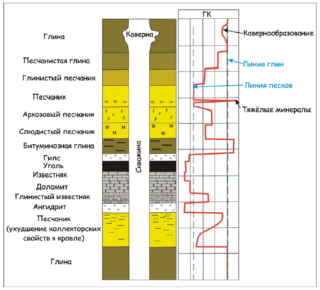
If water comes out of the well with a disgusting smell of hydrogen sulfide, it is necessary to get rid of not only the "aroma". It is required to remove hydrogen sulfide compounds from the liquid by cleaning the well. This can be done in the following ways:
- Water intake logging. The procedure is needed to determine the cause of the well failure. Performed by a professional using special equipment.
- Mine cleaning. This must be done in order to get rid of the sandy-silty sediment at the bottom of the well, which is a comfortable living environment for sulfur bacteria. It is possible to apply washing with a water jet while pumping out dirty liquid, destroying deposits mechanically with non-stop pumping of contaminated water, or other cleaning methods.
- Swelling of the water intake. It is used to remove dirt in places that are adjacent to the filter surface, and to eliminate stagnant foci in them.
If the problem is in the condition of the casing, it will have to be changed. If manipulation is impracticable due to dilapidation, a pipe with a smaller section is placed inside.
If the "aroma" is not too strong, it is not difficult to get rid of the infection with your own hands. It is necessary to use bio-compositions based on microorganisms that destroy sulfur bacteria.
Water disinfection methods
Most effective methods:
- Physical aeration using pressure and non-pressure degassers. The latter are large and not sealed. With the help of oxygen, they purify the liquid that enters through the inlet nozzles. To speed up the elimination of residues of toxic substances, it is recommended to install an air compressor in the tank. Pressure devices are small. They quickly saturate small portions of water with oxygen, driving the flow through a pumping unit.
- Chemical disinfection. It implies the absolute degassing of the water mass, where active components are used as an oxidizing agent - hydrogen peroxide, chlorine, ozone, potassium permanganate. These substances are in special cartridges through which liquid is passed. During oxidation, water-insoluble compounds appear - sulfur, sulfate, thiosulfate, which remain in the filtration element.
- Sorption catalytic purification. Assumes the use of special absorbents. They help accelerate oxidation in sulfur compounds. The main disadvantage of sorption disinfection is the duration of the procedure. The best sorption fillers are natural materials with microscopic pores - charcoal or activated carbon. They have increased catalytic performance, allowing you to quickly and easily clean water from any impurities. And the oxide elements will settle in the filler, and they will be removed along with the replacement of the cartridge.
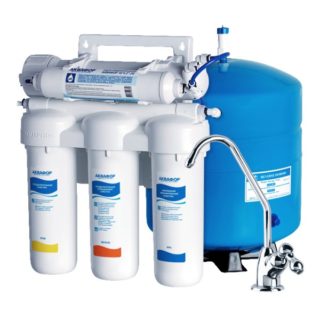
You can install a reverse osmosis column with a membrane that allows only water molecules to pass through. The cleaning will be perfect. The downside is that along with harmful suspensions, useful substances will disappear from the liquid. Before drinking, the water will have to be passed through a special mineralizer.
It is best to assemble a system of several filtration units or install a complex purification and disinfection equipment.
Popular filters that completely eliminate stink and harmful substances in water are installations for deferrization and softening with the effect of absorbing hydrogen sulfide. They are represented by well-known companies "Aquaphor" and "Geyser". The price of filtration devices of the first brand starts at 53,000 rubles, the second - from 35,000 rubles.
It is possible to remove harmful hydrogen sulfide in the well forever and prevent dangerous consequences if this problem is solved in a complex. It is necessary to remove the smell and clean the source from sulfur bacteria, as well as install a filtration device to avoid repeated problems.


